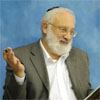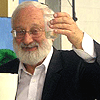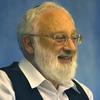 A comment I received: I watched a lesson you gave recently on the Internet, where you talked about your blog for a few minutes, and I felt like you described exactly how I feel as a reader. Most Internet users can’t read Internet posts longer than a paragraph, or even a few lines. At most, the reader quickly scans the text, thinking, “Too many letters…” and moves on to read the comments.
A comment I received: I watched a lesson you gave recently on the Internet, where you talked about your blog for a few minutes, and I felt like you described exactly how I feel as a reader. Most Internet users can’t read Internet posts longer than a paragraph, or even a few lines. At most, the reader quickly scans the text, thinking, “Too many letters…” and moves on to read the comments.
My Response: My blog was created with a clear purpose – to explain Kabbalah. It’s not meant for arguing with anyone. However, some people may not be ripe enough for it. A person needs to have gone through all desires, one after the other – from bodily desires (food, sex, family, shelter), to social desires that arise under society’s influence (wealth, fame, respect, knowledge). Once a person has reached a state of realizing that none of these desires can bring about fulfillment, the point in the heart (the desire to fulfill the soul) awakens. This process takes thousands of years and many reincarnations.
Therefore, it is useless arguing with people who haven’t ripened yet. They still feel fulfilled by religion (a “deal” they make with the Creator: “I’ll do whatever You commanded me to do, and in return You’ll give me fulfillment and reward in this world, and the world to come”), wealth, and so on. I simply ask all such people to leave us, or to study a little bit at a time. However, everyone who is disappointed with life and who doesn’t see how to find fulfillment, is invited.
An ancient text says, “Someone by the name of Ptachia came to our village, stayed for a while, and left, and with him also the empty people…” The name Ptachia derives from the verb Liftoach, which in Hebrew means “to open.” This person knew how to open the higher sources of fulfillment to people, because Kabbalah is the science of fulfillment. And the empty people who left together with him were those who desired to be filled by the Upper Light.
And he took them to the desert, so that they would discover even more emptiness within themselves. This is because the initial disappointment and emptiness that a person feels when first coming to Kabbalah are insufficient for fulfilling the person with the Upper Light, both in the quantity and the quality of the emptiness.
Look at what Baal HaSulam writes in the “Introduction to Talmud Eser Sefirot,” items 1 and 2, about a person coming to Kabbalah:
1. At the outset of my words, I find a great need to break an iron wall that has been separating us from the wisdom of Kabbalah since the ruin of the Temple to this generation. It lies heavily on us and arouses fear of Kabbalah being forgotten from Israel.
However, when I begin to speak to anyone about the study of Kabbalah, his first question is, “Why should I know how many angels are in the sky, and what their names are? Can I not keep the entire Torah in all its details and intricacies without this knowledge?”
Second, he will ask, “The sages have already determined that one must first fill one’s belly with Gmarah and Talmud. Thus, how can one deceive himself in that he has finished the entire revealed Torah, and lacks only the wisdom of the hidden?
Third, one is afraid that he will miss out on something because of this engagement, as there have already been incidents of deviation from the path of Torah because of engagement in Kabbalah. Hence, why do I need this trouble? Who is so foolish as to place himself in danger for no reason?
Fourth: Even those who favor this study only permit it to holy ones, servants of the Creator. Not all who wish to draw close to the Lord may do so.
Fifth, and most importantly, “It is a conduct in our midst that when in doubt, do as the people do,” and my eyes see that all those who study Torah in my generation are of one mind, and refrain from studying the hidden. Moreover, they advise the ones who ask them that it is undoubtedly preferable to study a page of Gmarah instead of Kabbalah.
2. Indeed, if we set our hearts to answer but one very famous question, I am certain that all these questions and doubts will vanish from the horizon, and you will look unto their place to find them gone. This indignant question is a question that the whole world asks, namely, “What is the meaning of my life?” In other words, these numbered years of our life that cost us so dearly and the numerous pains and torments that we suffer for them, to complete them to the fullest, who is it that enjoys them? Even more precisely, to whom do I give delight?
It is indeed true that historians of all generations have already grown weary contemplating it and particularly in our generation, when no one even wishes to consider this question. Yet the question stands as bitterly and as vehemently as ever. Sometimes it meets us uninvitingly, pecks at our mind and humiliates us to the ground before we find the famous ploy to flow mindlessly in the currents of life as yesterday…
This blog was created for those who do not want to drown in the currents of life!
My Current Mood: loved
Filed under: Spirituality - No Comments →
 A question I received in response to my post “It’s All for the Best (But We Can Get to It Faster)“: How can we progress without someone of Moses’ level guiding us forward? We don’t see the Creator’s participation in our daily routine. So who can we turn for answers? The group? Rav? Perhaps if we recognize our egoism and begin to move in the right direction as a group, then the Upper Light will become our guide? Who will guide us through the desert and the disasters that are coming at us so rapidly that we can’t even catch our breath?
A question I received in response to my post “It’s All for the Best (But We Can Get to It Faster)“: How can we progress without someone of Moses’ level guiding us forward? We don’t see the Creator’s participation in our daily routine. So who can we turn for answers? The group? Rav? Perhaps if we recognize our egoism and begin to move in the right direction as a group, then the Upper Light will become our guide? Who will guide us through the desert and the disasters that are coming at us so rapidly that we can’t even catch our breath?


 A recent telephone survey of almost eleven hundred Americans, conducted by scientists from the Texas A&M University, shows that “the more informed respondents both feel less personally responsible for global warming, and also show less concern for global warming” (
A recent telephone survey of almost eleven hundred Americans, conducted by scientists from the Texas A&M University, shows that “the more informed respondents both feel less personally responsible for global warming, and also show less concern for global warming” ( A question I received on my post
A question I received on my post  A question I received on my post
A question I received on my post  A question I received on my post
A question I received on my post  A question I received: You say that there is nothing any lecture or class you see on a street corner can give someone, other than temporary relief, which is followed by even greater disappointment, and that it is because egoism cannot be corrected by physical exercises, meditation, medications, and even by observing the commandments. On the contrary, egoism grows and gets bigger, which eventually brings a person to Kabbalah, which is precisely the method for egoism’s correction. But until a person finds Kabbalah, there is a long path ahead of him, full of suffering.
A question I received: You say that there is nothing any lecture or class you see on a street corner can give someone, other than temporary relief, which is followed by even greater disappointment, and that it is because egoism cannot be corrected by physical exercises, meditation, medications, and even by observing the commandments. On the contrary, egoism grows and gets bigger, which eventually brings a person to Kabbalah, which is precisely the method for egoism’s correction. But until a person finds Kabbalah, there is a long path ahead of him, full of suffering. The threat of a geo-political catastrophe, brought about by the clash of the Christian and Muslim civilizations, forces each of them to guard itself by preventing the other’s expansion. The rational West and the irrational East consider each other wrong, and are unwilling to understand one another. The East does not accept the ideas of the Western civilization (democracy, equality, and freedom) as coming from man. They understand them as coming from the Creator. Islam believes that the Koran dictates the world’s proper structure, and that only the Muslims are a nation of God. In the Muslim world, politics and religion are united, and hence even a purely political change is perceived as a threat to their religion and way of life. Salvation lies in complementing one another, rather than eliminating each other. But it’s impossible to achieve this, so there’s no solution!
The threat of a geo-political catastrophe, brought about by the clash of the Christian and Muslim civilizations, forces each of them to guard itself by preventing the other’s expansion. The rational West and the irrational East consider each other wrong, and are unwilling to understand one another. The East does not accept the ideas of the Western civilization (democracy, equality, and freedom) as coming from man. They understand them as coming from the Creator. Islam believes that the Koran dictates the world’s proper structure, and that only the Muslims are a nation of God. In the Muslim world, politics and religion are united, and hence even a purely political change is perceived as a threat to their religion and way of life. Salvation lies in complementing one another, rather than eliminating each other. But it’s impossible to achieve this, so there’s no solution! A comment I received: I watched a lesson you gave recently on the Internet, where you talked about your blog for a few minutes, and I felt like you described exactly how I feel as a reader. Most Internet users can’t read Internet posts longer than a paragraph, or even a few lines. At most, the reader quickly scans the text, thinking, “Too many letters…” and moves on to read the comments.
A comment I received: I watched a lesson you gave recently on the Internet, where you talked about your blog for a few minutes, and I felt like you described exactly how I feel as a reader. Most Internet users can’t read Internet posts longer than a paragraph, or even a few lines. At most, the reader quickly scans the text, thinking, “Too many letters…” and moves on to read the comments.




